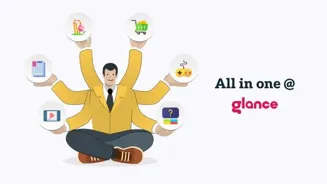Unleash Team Power: Master Communication for Success. Dive deeper into 7 tips for effective collaboration
In today's fast-paced work environment, effective team collaboration is no longer a luxury, but
a necessity. Whether you're part of a small startup or a large multinational corporation, the ability to communicate clearly and work seamlessly with your colleagues is crucial for success.
But simply putting a group of people together doesn't automatically guarantee a high-performing team. It requires conscious effort, the right tools, and a commitment to building a culture of open and honest communication.
Many projects stumble not because of a lack of talent, but due to misunderstandings, missed deadlines, and conflicting priorities.
Therefore, mastering communication becomes the bedrock upon which successful teams are built, transforming potential chaos into harmonious productivity and driving collective achievements.
Active listening fosters team unity, respect, and innovation
One major component that builds a strong team is active listening. Truly hearing what your teammates are saying, understanding their perspectives, and responding thoughtfully is essential.
Put away your phone, make eye contact, and focus on understanding the message, not just formulating your response. This also involves asking clarifying questions to ensure you're on the same page and avoid any potential misunderstandings down the line.
Remember, communication is a two-way street, and active listening fosters a sense of respect and encourages open dialogue. By fostering an understanding amongst team members, you create psychological safety, encouraging individuals to share ideas more freely and take calculated risks.
This environment is crucial to innovation and allows teams to tackle complex problems.
Clear, concise communication key for effective team collaboration
Another vital skill for effective team collaboration is clear and concise communication. Avoid jargon, technical terms that your colleagues might not be familiar with, and overly complex sentence structures. Get straight to the point and use simple language that everyone can easily understand.
When conveying important information, consider using multiple channels, such as email, instant messaging, and face-to-face meetings (even if virtual), to ensure your message is received and processed effectively. Don't forget to summarise key points and action items to avoid any ambiguity.
Effective communication is not just about what you say, but also how you say it. Keep your tone positive and respectful, even when delivering critical feedback.
A positive and constructive approach will ensure your message is well-received, and the team will be more likely to readily accept the information shared.
Leverage tools for effective team collaboration, choose wisely for success
Leveraging the right tools can significantly enhance team collaboration. Project management software, for example, can help you organize tasks, track progress, and manage deadlines effectively. Collaboration platforms, such as Asana, Trello, or Monday.
com, enable teams to share files, communicate in real-time, and work together on documents seamlessly.
Video conferencing tools like Zoom or Google Meet facilitate virtual meetings, enabling teams to connect and collaborate regardless of their physical location especially in this world that is becoming more digitally connected.
It is equally important to choose the correct tool based on the team's needs and preferences. Each tool should be deployed judiciously and the team should properly be trained to use the tool efficiently.
If used in a proper way, it can significantly boost a team's ability to meet goals, provide updates and reduce confusion.
Constructive feedback is essential for team growth
Providing constructive feedback is essential for team growth, but it needs to be delivered thoughtfully and with empathy. Focus on the behaviour or outcome, not the person.
Start with positive observations before addressing areas for improvement, and always offer specific suggestions for how to improve. Frame your comments in a way that encourages growth and learning, rather than criticism.
Remember, feedback is a gift, but it's only effective if it's delivered in a way that is received positively. Emphasise the impact of an action or behaviour, ensuring that the recipient understands the consequences of their actions.
This helps them appreciate the importance of changing their approach and contributes to a culture of continuous improvement within the team. Remember, a person should be appreciated, not just what they do.
Establish clear roles and responsibilities for efficient team management
Establishing clear roles and responsibilities is crucial for preventing confusion and duplication of effort. Each team member should have a clear understanding of their individual responsibilities and how they contribute to the overall project goals.
Document roles and responsibilities clearly, and refer to them regularly to ensure everyone is on the same page. This ensures accountability and prevents any ambiguity that could lead to delays or errors.
When projects are big, it gets difficult to manage things clearly, especially if the roles and responsibilities are not divided properly. This also leads to team conflict and project delays. Teams should have clarity on who is responsible for what to work efficiently as a team.
Promote trust and respect for effective team collaboration
Finally, promoting a culture of trust and respect is fundamental to effective team collaboration. Create an environment where team members feel safe to share their ideas, ask questions, and express concerns without fear of judgment or ridicule.
Encourage open dialogue and active listening, and celebrate both individual and team accomplishments. Trust is built over time through consistent actions and behaviours, such as keeping promises, being transparent, and showing empathy.
When team members trust and respect each other, they are more likely to collaborate effectively, share knowledge freely, and support each other in achieving common goals. A great team is built on trust.
AI Generated Content. Glance/InMobi shall have no liability for the content


















